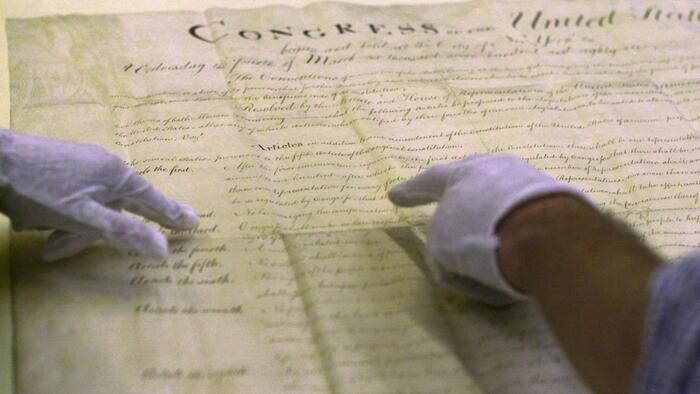In a recent discussion, Vice President Kamala Harris portrayed the Democratic Party as the champion of freedom, urging voters to support her to protect the First, Second, and Fourth Amendments. However, her past statements and actions raise questions about this commitment to constitutional rights. On the First Amendment, she previously called for governmental control over social media to combat what she describes as misinformation. Her vice-presidential nominee, Gov. Tim Walz, even suggested that there is no absolute guarantee of free speech pertaining to misinformation or hate speech. This raises concerns about the implications of regulating speech under the guise of addressing misinformation.
Regarding the Second Amendment, Harris has made contradictory statements about gun control while ostensibly supporting the right to bear arms. During her 2020 presidential run, she endorsed a mandatory buyback program for firearms. When challenged on the feasibility of banning assault weapons via executive order, her response suggested a willingness to bypass traditional limitations by saying, “Yes, we can.” This pattern is not new; Harris has advocated for stricter gun control throughout her career, including as San Francisco’s District Attorney, where she expressed intentions to check the responsible ownership of legally possessed firearms in private homes.
Furthermore, Harris has a controversial record regarding individual rights related to self-defense. In a 2008 brief, she argued for a total handgun ban and claimed an absence of a constitutional right to self-defense. Under the Biden-Harris administration, stringent measures against gun ownership have been evident, leading to the closures of thousands of gun dealers due to trivial compliance issues. The administration’s revival of Operation Choke Point aimed to financially stifle gun manufacturers and dealers, while also pushing for a national gun registry—a move that raises red flags concerning privacy and the Fourth Amendment.
If Harris ascends to the presidency, the expectation is that she would amplify restrictive measures on gun ownership. Her leadership of the newly formed Office of Gun Violence Prevention is indicative of her administration’s focus on stricter gun control legislation. Under her directive, the office has administered reviews that overlook any benefits of gun ownership, promoting a narrative that sees gun ownership predominantly in a negative light. Recent legislation, such as the Bipartisan Safer Communities Act, introduces intricate rules categorizing numerous private gun owners as potential firearms dealers, thereby enforcing convoluted licensing requirements.
The vague stipulations in these new gun laws could lead to arbitrary labeling of individuals as dealers, subjecting them to federal scrutiny and regulation. Harris’s campaign already prioritizes gun control, having discussed it prominently at early campaign events. Additionally, the Office of Gun Violence Prevention has sought to pursue legal actions against gun manufacturers when their products are misused, further reflecting her administration’s approach to gun-related issues. This trend raises serious concerns about the implications for constitutional freedoms.
The overarching concern posited by critics is that the election of Kamala Harris could pose significant threats to the First, Second, and Fourth Amendments, undermining the rights traditionally afforded to citizens. The rise of a governmental framework that prioritizes regulation and oversight over individual freedoms could be detrimental to the foundations of American democracy. Thus, the intersection of Harris’s political rhetoric and her actions prompts a critical examination of the potential risks to vital civil liberties should she gain more power within the government.

